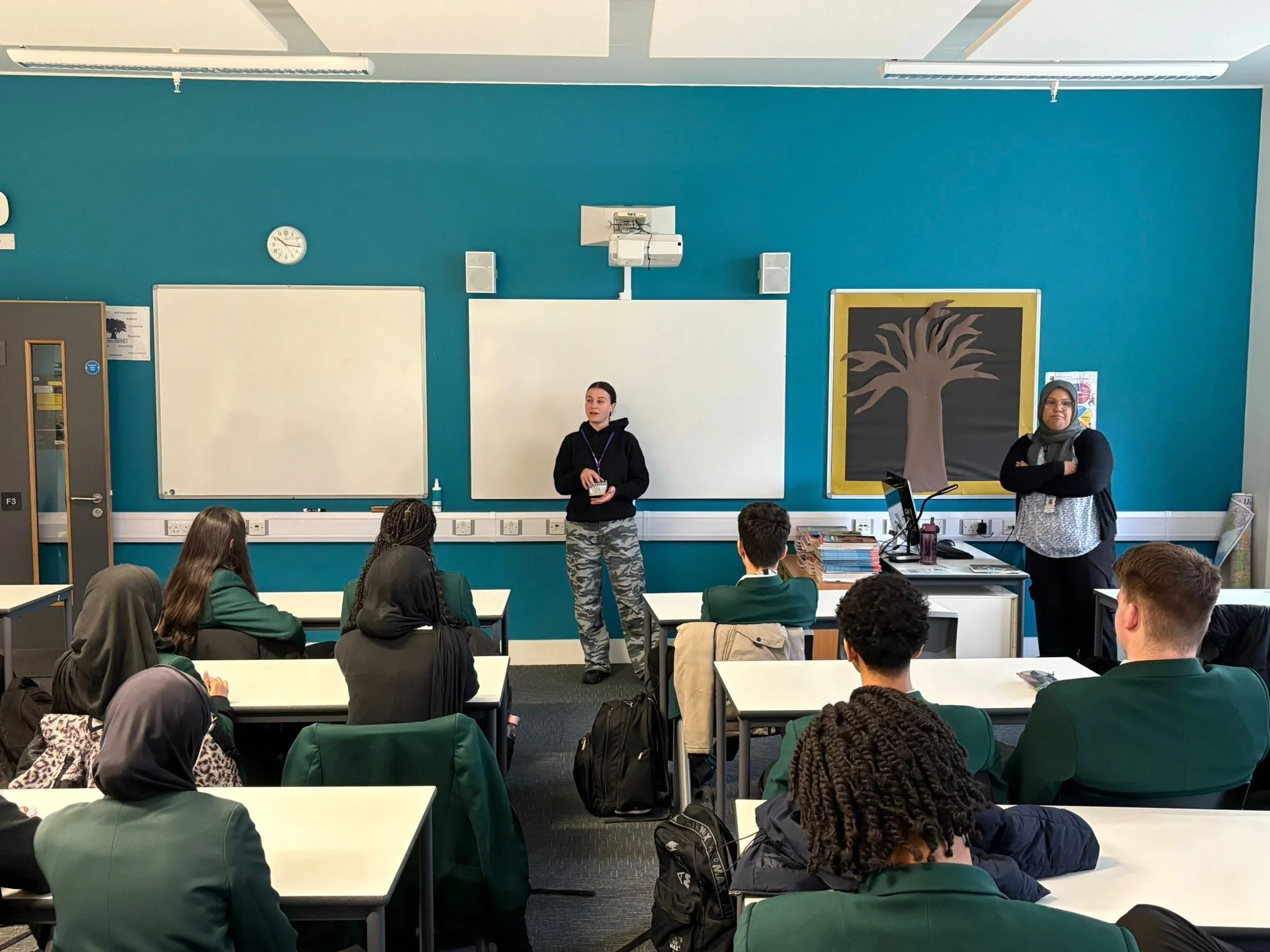Giving Back What I Once Needed: Kelly’s Journey with the Amy Winehouse Foundation
Can you tell us a bit about how you came about volunteering at the Amy Winehouse Foundation
I first learned about volunteering at the Amy Winehouse Foundation during a house meeting. As a former resident at Amy’s Place, I’ve experienced first hand how the foundation supports young women who use drugs and alcohol.
When the chance to receive training as a volunteer was offered to residents, I knew I had to seize it. The foundation truly changed my life, and the opportunity to be part of something that could help educate young people in schools about drug and alcohol use and mental health, felt like everything I needed to hear when I was growing up.
What is it like talking to young people about drugs and alcohol?
Having entered recovery at a young age, I feel I can relate to young people when it comes to discussions about drugs and alcohol. I’m not there to tell anyone what to do or how to live their lives; I’m there to share my experiences and raise awareness about addiction and mental health. By speaking openly about these topics, I help create a safe space for young people to connect. If my words resonate with them, they can feel comfortable knowing there’s support available, and they can openly discuss their own struggles. I also guide them towards the right services or charities so they can access the help they need.
Do you find that young people hold stigma around drug and alcohol use? How do you navigate that?
I believe there’s still a lot of stigma surrounding drugs and alcohol—not just among young people, but in society as a whole. When people are asked what they think addiction looks like, many imagine a homeless person on a park bench. That’s why I feel it's so important to volunteer and share my story—because addiction can affect anyone. The disease doesn’t discriminate based on age, gender, race, or financial status. It can impact anyone, and that’s a message that needs to be heard. Stigma often prevents people from reaching out for the support they need, and breaking that stigma is a crucial step toward helping others find recovery.
Given that you speak to young people aged 11-19+ do you have to change your language much? In what ways?
Depending on the age group I’m speaking to, I always adapt my story and the language I use. For younger audiences, I avoid going into detail about certain situations that would be more appropriate for older listeners. I also adjust my vocabulary to suit their level of understanding. For example, if I use a word like “alcoholic,” I’ll pause to check if everyone understands what it means. If not, I take the time to explain it. It’s important to me that everyone in the room feels included and can fully engage with what I’m sharing.
How do adults and young people experience stigma differently?
In my experience, young people are often dismissed when it comes to seeking support for drug and alcohol use. There’s a common misconception that they’re just young and experimenting, which can prevent them from being taken seriously. Because young people often have fewer responsibilities—like paying bills or raising children—their struggles may be seen as less severe simply because they’re not facing the "typical consequences" associated with addiction, such as losing a home or neglecting a family. This mindset can be incredibly damaging, as it downplays the very real issues young people face and can delay them getting the help they need.
What's your one message to young people today regarding drug and alcohol?
Take a moment to reflect on why you’re turning to drugs or alcohol in the first place. Is there something in your life that’s too painful to face, leading you to seek escape? Are you feeling pressured by friends to use substances? Or are you struggling with mental health and using substances as a way to numb the pain? When I first began drinking and using drugs, it quickly became clear to me that I was doing it to avoid dealing with life’s challenges and the chaos in my mind. What I truly needed was support to work through my issues, not drugs and alcohol to cover them up. The truth is, substances didn’t solve anything—they only made everything worse, and I lost years of my life to drug and alcohol use in the process.
What’s one thing you would want all young people to know, and why?
The pain you’re feeling doesn’t last forever, and the darkness does eventually fade. If you’re battling mental health issues or addiction, don’t wait until you hit rock bottom to ask for help. You have the power to decide how you want to live your life and what that looks like. You deserve to show up for yourself and take the time to understand who you are. Be gentle with yourself and become your own best friend.
When I was younger, I didn’t have the tools or knowledge to take care of myself. But after reaching out for help and getting the support I needed, I’ve learned how to show up for myself. I won’t abandon myself anymore. I surround myself with people who love and support me, and I care for my body, mind, and soul. It’s never too late—or too early—to change your life. The most important thing is to take that first step, no matter how small it may seem.
